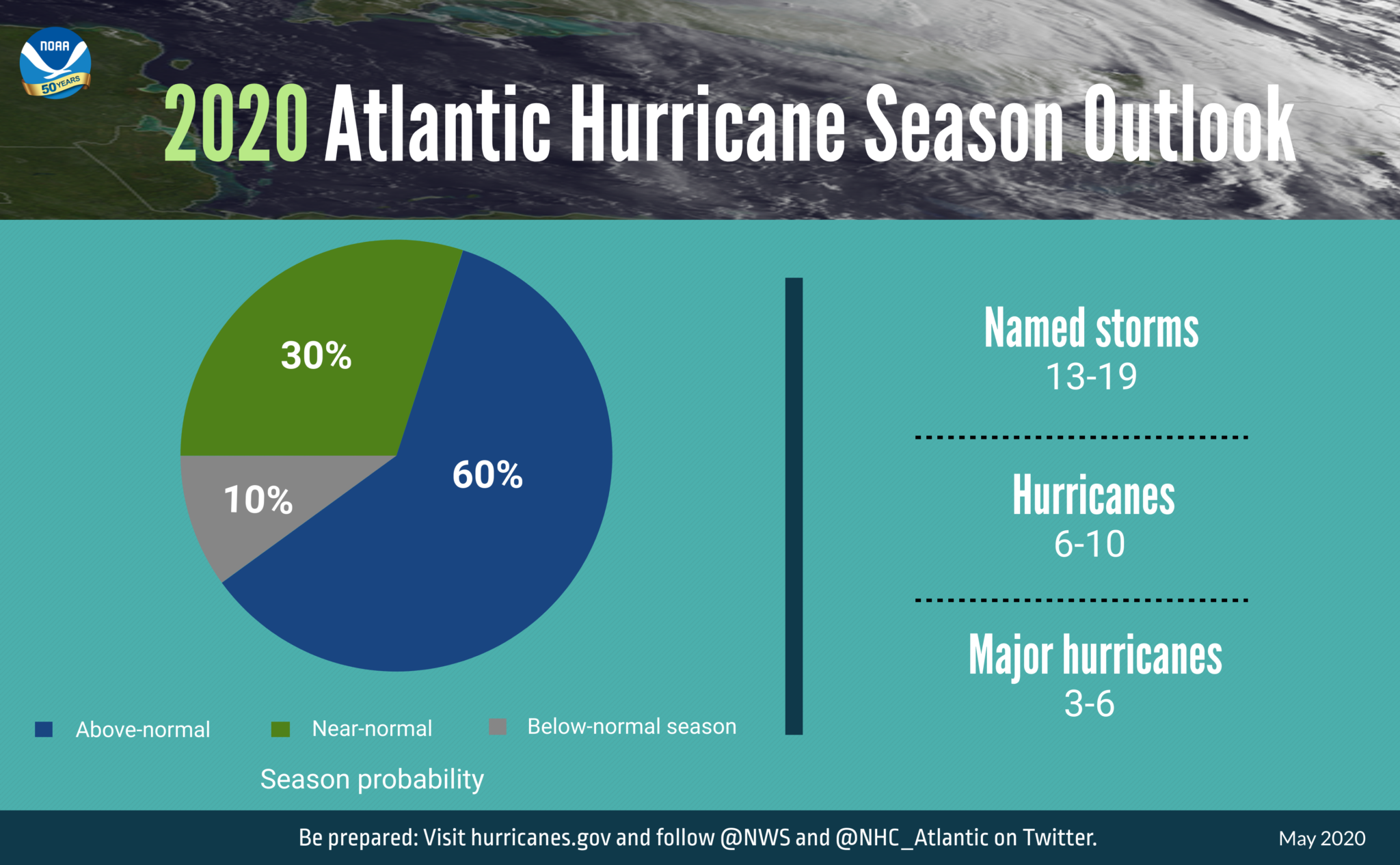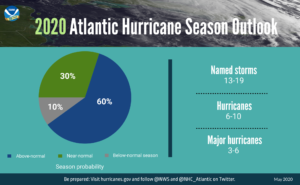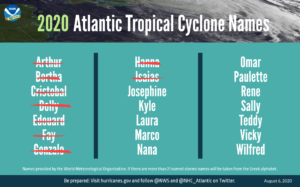Hurricane Season

By Christine O’Keefe, Elliot Whitter Insurance
Here in the northeast, an above-normal hurricane season is expected, according to the National Oceanic and Atmospheric Administration. They predict an 85% chance activity will be above-normal, 10% chance near-normal, and only 5% chance it will be below-normal.
“As Americans focus their attention on a safe and healthy reopening of our country, it remains critically important that we also remember to make the necessary preparations for the upcoming hurricane season,” said Secretary of Commerce Wilbur Ross. “Just as in years past, NOAA experts will stay ahead of developing hurricanes and tropical storms and provide the forecasts and warnings we depend on to stay safe.”
The Atlantic hurricane season runs from June 1st – November 30th. The need to be prepared is especially critical for the 2020 hurricane season, as social distancing and other CDC guidelines to keep you safe from COVID-19 need to be considered. Typical preparation steps can be found in one of our previous blogs on this subject “Some Tips on How to Prepare for a Hurricane” which include tips on how to prepare your property. Additional steps to consider in the pandemic environment we are in can be found below.
Prepare for hurricane season
- Understand that your planning may be different this year because of the need to protect yourself and others from COVID-19.
- Give yourself more time than usual to prepare your emergency food, water and medicine supplies. Home delivery is the safest choice for buying disaster supplies; however, that may not be an option for everyone.
- Protect yourself and others when filling prescriptions by limiting in-person visits to the pharmacy. Sign up for mail-order delivery or call in your prescription ahead of time and use drive-through windows or curbside pickup, if available.
- Pay attention to local guidance about updated plans for evacuations and shelters, including shelters for your pets.
- When you check on neighbors and friends, be sure to follow social distancing recommendations (staying at least 6 feet from others).
Prepare to evacuate
- If you may need to evacuate, prepare a “go bag” with personal items you cannot do without during an emergency. Include items that can help protect you and others from COVID-19, such as hand sanitizer with at least 60% alcohol, bar or liquid soap, disinfectant wipes and two cloth face coverings for each person.
- Know a safe place to shelter and have several ways to receive weather alerts, such as the National Weather Service cell phone alerts, the NOAA Weather Radio (NWR), or (@NWSBoston) Twitter alerts.
- Find out if your local public shelter is open, in case you need to evacuate your home and go there. Your shelter location may be different this year due to the COVID-19 pandemic.
- If you need to go to a disaster shelter, follow Centers for Disease Control recommendations for staying safe and healthy in a public disaster shelter during the current pandemic.
- Make a plan and prepare a disaster kit for your pets. Typically, when shelters accommodate pets, they are housed in a separate area from people.
- If you have to travel away from your community to evacuate, follow safety precautions for travelers to protect yourself and others from COVID-19.
Stay safe after a hurricane
In addition to following guidance for staying safe and healthy after a hurricane, note that:
- You should continue to follow preventive actions to protect yourself and others from COVID-19, like washing your hands and wearing a cloth face covering during cleanup or when returning home.
- If you are injured or ill, contact your medical provider for treatment recommendations. Keep wounds clean to prevent infection. Remember, accessing medical care may be more difficult than usual during the pandemic.
- Dealing with disasters can cause stress and strong emotions, particularly during the ongoing pandemic. It is natural to feel anxiety, grief and worry. Coping with these feelings and getting help when you need it will help you, your family and your community recover.
- After a hurricane, it’s not unusual for rats, mice and other pests to try to get into your home or building. Follow recommendations for keeping pests out of your home.
Do you wonder what the names will be of the upcoming 2020 hurricanes? Check out this graphic again from NOAA.






